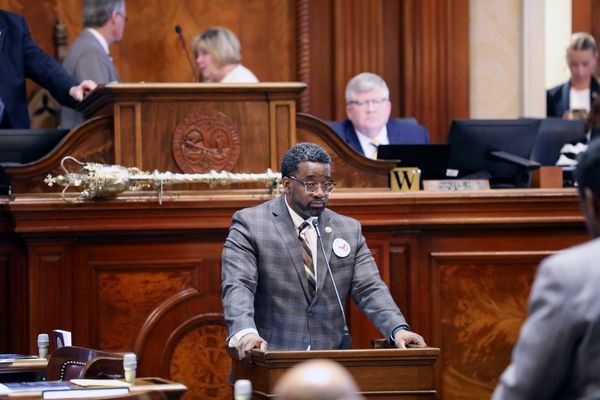Rents in London’s private rented sector are spiralling out of control as a combination of high demand and a rapidly shrinking market sends prices skywards.
The latest data from Rightmove’s Rental Price Tracker, which asking prices for new listings, found the average London rent was now an eye-watering £2,257 per month, a record high for any UK city. The past three months have seen an annual rise in asking prices of 15.8 per cent.
The latest government statistics, which cover all rents including existing tenancies, reveal that rents in London rose the most in five years, growing 2.1 per cent in the year to July.
The cost of living crisis means tenants are also having to shell out more for bills. Amid this challenging backdrop, campaigners are calling on the government to tackle affordability, which is caused by the lack of available rental properties and extremely high demand.
But while the government is planning a shake-up of the private rented sector under the Renters’ Reform Bill, the new legislation includes no measures to curb rising rents.
Shrinking market
The imbalance between demand and supply continues to wreak havoc in the private rented sector. New data from estate agency Chestertons, which compares July 2022 to July 2021, has revealed a ‘staggering’ 38 per cent drop-off in the number of available properties on the market.
At the same time, tenant enquiries are up by 60 per cent leading to a severe mismatch across the sector. Chesterton’s data also shows that there were 45 per cent fewer landlords were willing to lower their asking rents compared to the same month last year.
Richard Davies, MD of Chestertons, says: “We continue to see tenants who are really struggling to secure a property in London due to the sheer volume of tenants that are fighting over each new rental property that comes onto the market.
“To try and avoid further disappointment, many tenants are offering to pay landlords more rent than they are asking for, but even this isn’t guaranteed to work.
Impacting on inflation
London’s soaring rents and expensive food prices are driving inflation in the capital, according to City Hall. Sadiq Khan said London’s underlying inflation was 1.5 per cent higher than the national rate which jumped to 10.1 per cent in July, the first double-digit annual increase in more than four decades.
Khan said that this inflationary pressure will only grow as more people renew or move out of contracts that may have been kept at a lower price for longer due to the pandemic.
However, Londoners spend less on energy compared to their counterparts in the rest of the UK due to warmer weather and smaller property sizes due to high housing costs.
Recent research from YouGov published also found the number of Londoners being hit by the rising cost of living is also going up every month, with nearly a third saying they are ‘just about managing’ and almost one in five ‘financially struggling’.
Calls for a cap grow louder
The government is mulling plans to introduce further limits on rent rises in the affordable housing sector, according to reports by Housing Today. The government is set to unveil plans to restrict rent increases to around five to seven per cent, due to concerns over how the cost-of-living crisis is impacting tenants.
But there are no such plans for the private rented sector. The Government is introducing changes that will prohibit landlords from using Section 21 “no fault” evictions and empower tenants to challenge unjustified rent increases under its Renters Reform Bill.
However, campaigners have claimed that the plan needs to be toughened up as it doesn’t do “anywhere near enough” to help millions of people who rent in the UK.
Anny Cullum, policy officer at housing campaign group Acorn, told Sky news this week: “What we want to see is caps and rent controls put in. We can’t rely on landlords to regulate themselves - at the end of the day they are businesspeople, and they’ll take advantage of opportunities to make as much profit as they can.”
Khan has also called on the government to bring in a two-year rent freeze to “cool the overheated private rented sector”.
The government said its rental reforms will help tenants by giving them greater security, meaning they will be less likely to face unexpected moving costs which can cause a financial strain.
It also said it will also only allow increases to rents once a year and will end the use of rent review clauses, as well as improving tenants’ ability to challenge excessive rent increases through tribunals.







